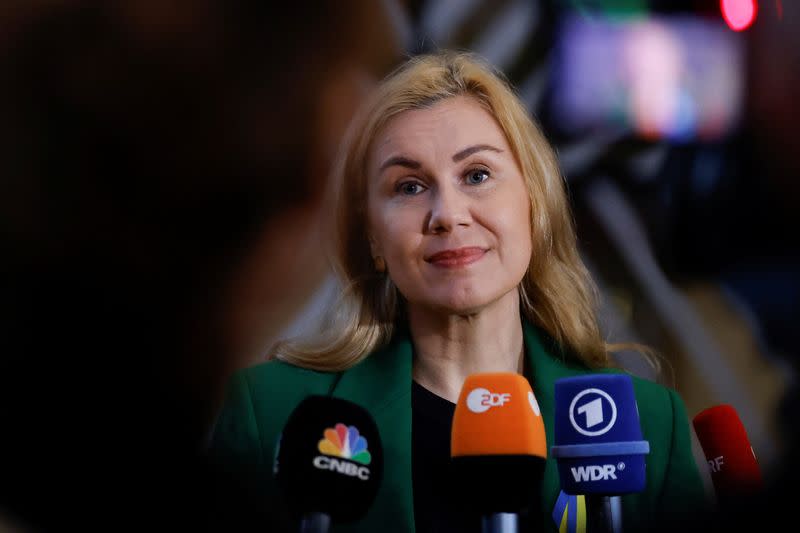Putin's energy blackmail of Europe has failed, commissioner says

VALLETTA (Reuters) - Russian President Vladimir Putin's attempt to blackmail Europe using energy resources has failed, but next year will still be challenging, the European Commissioner for Energy, Kadri Simson, said on Thursday.
Speaking at a meeting of EU Mediterranean energy ministers in Malta, Simson said the Mediterranean region had played a key role in helping the EU 27 respond to an extraordinary year of energy crisis and hardship created by the Russian invasion of Ukraine.
The EU launched the REPowerEU plan in May 2022 in response to the market disruption caused by Russia's invasion, aiming to bring about energy savings, increase the production of clean energy and diversify energy supplies.
"One year on, we can say that Putin's attempt to blackmail Europe using energy has failed and more importantly for the long term we have massively invested in renewables," Simson said.
The commissioner underlined the Mediterranean's potential for floating wind technology and said the Commission had prepared an indicative budget of 50 million euros to back up its call for innovation in floating technology as part of its Horizon programme for funding research and innovation.
"We are not yet out of the energy crisis and the year ahead will still be challenging. Europe needs to get even better in nurturing its own industry for the clean transition and deliver on its renewable energy objectives in order to be better able to leverage Europe’s energy independence," the commissioner said.
Maltese energy minister Miriam Dalli, who chaired the meeting, said the nine participating states had agreed that the Mediterranean had an important role to play in the transition to clean energy and that the pace of the transition needed to be speeded up.
Croatia, Cyprus, France, Greece, Slovenia, Italy, Portugal and Spain, along with Malta agreed to establish the Mediterranean as a centre for clean energy with a focus on offshore renewables and interconnections between EU and non-EU countries in the Mediterranean, she said.
(Reporting by Christopher Scicluna; Editing by Hugh Lawson)

 Yahoo News
Yahoo News 
